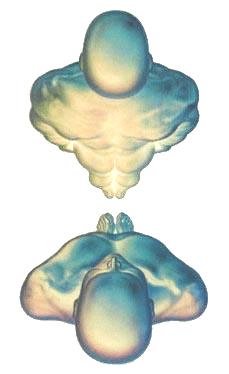I knew a Tibetan Buddhist Lama who died sitting up in a meditation pose, his body did not decompose as bodies tend to do, in fact for the first week after his death his skin still had elasticity and when they picked up his body after 13 days for the cremation ceremony there was no bad odor. I spoke to the funeral director and he said he had never seen anything like that before and was pretty sure that no other funeral director in Canada had ever had that experience.
This is not an unusual experience for Tibetans although it is hardly the usual one for them either but there is a term for it and those close to these beings understand the importance of sitting with the body during this time.
What was his name?



